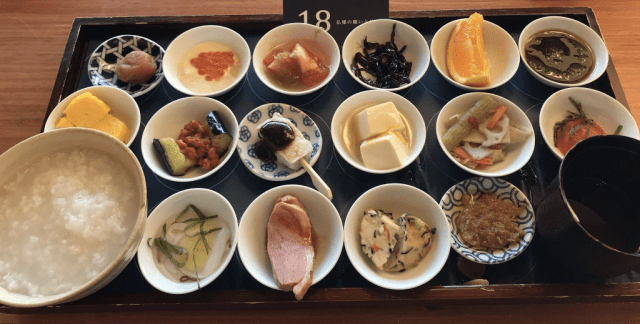
Sushi isn’t the only thing worth eating in Tsukiji.
If we’re being totally honest, we’re not really the biggest morning people here at SoraNews24, which means breakfast usually isn’t much of an event for us…unless you classify “cramming a convenience store onigiri rice ball into our mouth while typing at our work desk because we overslept and didn’t have time to eat at home” as an event.
Every now and again, though, we figure we should make time to make the most important meal of the day a little more special, which is how we ended up at Tokyo’s Tsukiji Hongangi temple at a time when we’re often just dragging ourselves out of bed.
Located just down the street from Tsukiji’s still-in-operation outer market, Honganji Temple’s main hall is a rare example of classic Indian-inspired Buddhist architecture in Japan. However, our destination was the cafe that’s housed in one of the courtyard annexes, called Tsumugi.
Tsumugi has quietly become one of the area’s most popular breakfast spots, and often has lines forming before the doors open at 8 a.m. When we showed up at 8:33, all seats were already taken, but we were given a seiriken (a card that acts as your place in line), and just five minutes later were ushered to a counter seat.
It didn’t take us long to decide what to order, either, as we instantly felt the pull of the “Japanese Style Breakfast with 18 kinds of items,” which also comes with your choice of hot or cold green tea.
▼ The menu’s English text makes it easy to order even if you don’t speak/read Japanese.
Since we’d gotten a seat so quickly, we assumed our food would be out soon too. And sure enough, we put in our order at 8:40, and just nine minutes later, a server came walking back over to our seat…
…but it turned out she was just bringing us our tea. Still, it had a rich aroma, tasted just as good, and between the sound of the ice cubes tinkling in the glass, the enchanting green color, and the cool sensation of the chilled beverage on our lips, all five of our senses were satisfied as we spent the next 10 minutes drinking it.
We followed that up with another 10 minutes looking out the window at the courtyard and temple architecture, and when our food still hadn’t come, 30 minutes after ordering, a certain fear began to build in our mind.
Had they forgotten our order?
We’re not ones to complain, though, so we decided to take inspiration from our surroundings and attempt to enter a calm, meditative state to cope with our hunger. But no matter how much we tried to clear our minds of conscious thought, our stomach kept growling and reminding us of the one worldly desire we couldn’t shed: FOOD!
We began to lose hope, with our hunger making us so delirious that we wondered if we’d been forsaken by the gods themselves. Ready to give up, we opened up the menu to confirm the official name of the breakfast we’d ordered, so we could tell the waitress to cancel it and then make another convenience store breakfast run, but within the pages of the menu came a message of divine salvation.
▼ Salvation
Honganji’s patron deity is Amida, and the celestial buddha has a special connection to the breakfast we’d ordered. According to the cafe’s menu:
“The reason for the 18-item breakfast:
The buddha Amida, Honganji’s patron deity, has made 48 vows to protect the lives of all living things. Amida’s 18th vow is ‘Whatever may occur, you will not be forsaken.’ Please taste the essence of that promise through the 18-item breakfast.”
And, like a miracle, moments after we read these words of encouragement, the waitress once again appeared, this time carrying our breakfast, 47 minutes after we’d ordered it!
So let’s run through the complete set. You get…
▼ Okayu (rice porridge), sliced octopus, grilled duck with sansho pepper (left to right, bottom row)…
▼ Umeboshi (pickled plum), ikura (salmon roe) (top row)
Tamagoyaki omelet, grilled eggplant with soybeans (bottom row)
▼ Fish and tofu cake, miso sardines, miso soup
▼ Sliced tomato, sweet kombu seaweed (top row)
Taro with sweet miso, tofu with yuzu citrus fruit (bottom row)
▼ Sliced orange, matcha green tea gelatin (top row)
Seasonal vegetables, spicy cod roe with seaweed (bottom row)
Since rice porridge doesn’t have much flavor by itself, several of the dishes are meant to be mixed into the okayu, such as the umeboshi, kombu, and spicy cod roe.
So what caused the delay? According to the waitress, because of how many customers are waiting to get in before the restaurant opens, they get a huge rush of orders right at the start of the day, which tends to back things up a bit (and the cafe caps its breakfast seating after the first 110 people). Still, we’ve waited longer than 47 minutes in lines outside of restaurants in Japan, and at least this time we had a seat, air conditioning, power outlets, and free Wi-Fi to keep us entertained while we waited for our order.
More importantly, was it worth the wait? Definitely, and as proof, you’ll see that we cleaned all 18 of our plates.
At 1,944 yen (US$17.80), Honganji’s 18-item Japanese breakfast isn’t the cheapest morning meal in Tokyo, and it’s definitely not the quickest either. But it’s one of the most unique, and surprisingly tranquil, provided you’re not in a rush, and if it leaves you craving yet another spiritual food experience, don’t forget that Tsukiji’s sushi shrine is just a short walk away.
Restaurant information
Tsukiji Honganji Cafe Tsumugi / 築地本願寺カフェTsumugi
Address: Tokyo-to, Chuo-ku, Tsukiji 3-15-1, Tsukiji Honganji Information Building
東京都中央区築地3-15-1 築地本願寺インフォメーション棟
Open 8 a.m.-9 p.m.
Website
Photos ©SoraNews24
● Want to hear about SoraNews24’s latest articles as soon as they’re published? Follow us on Facebook and Twitter!
[ Read in Japanese ]

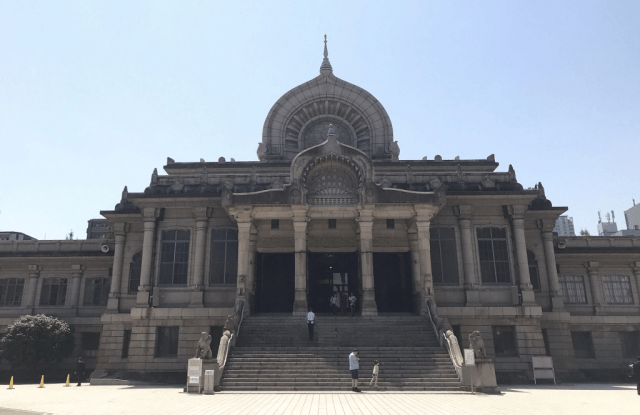
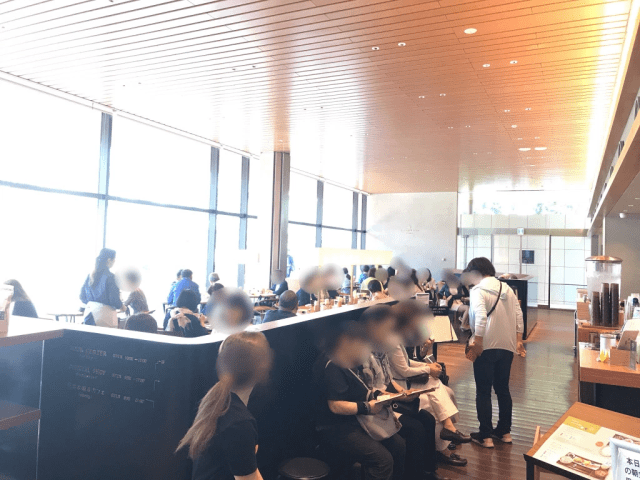
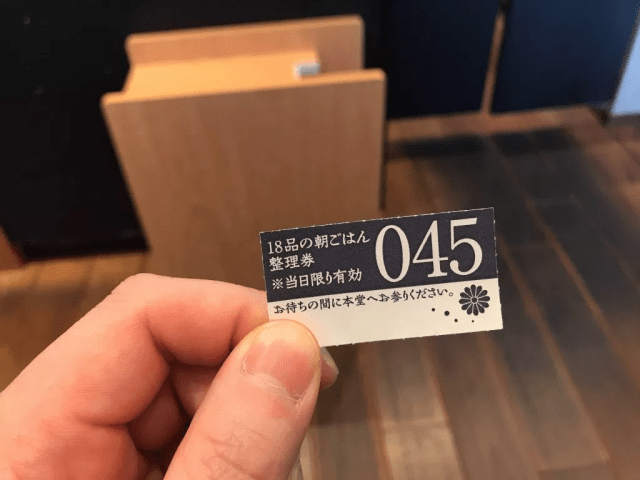
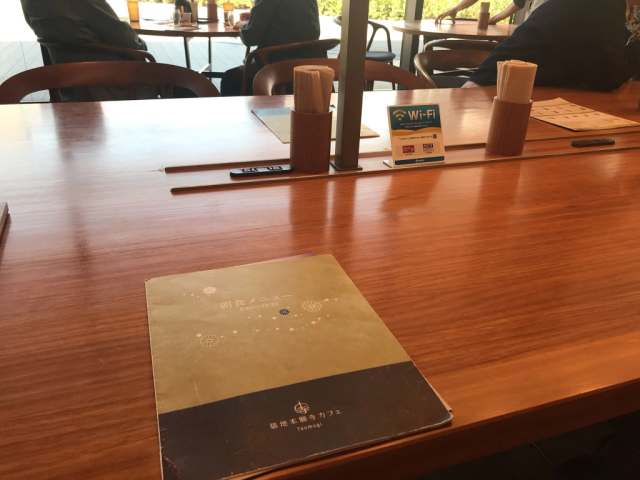
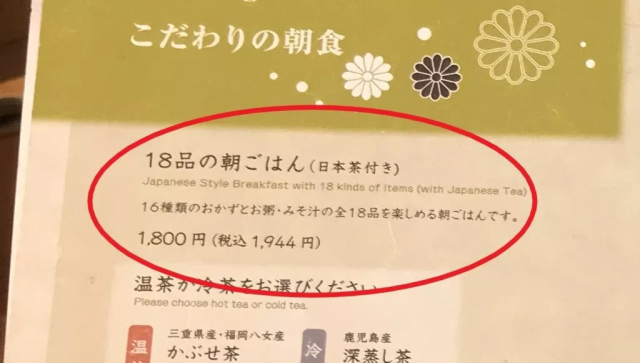
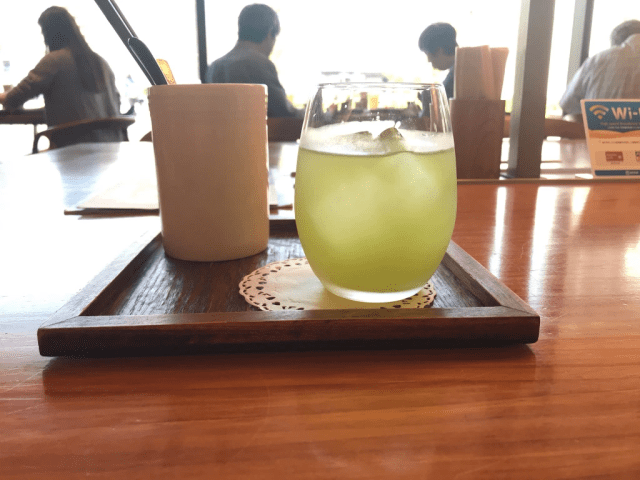
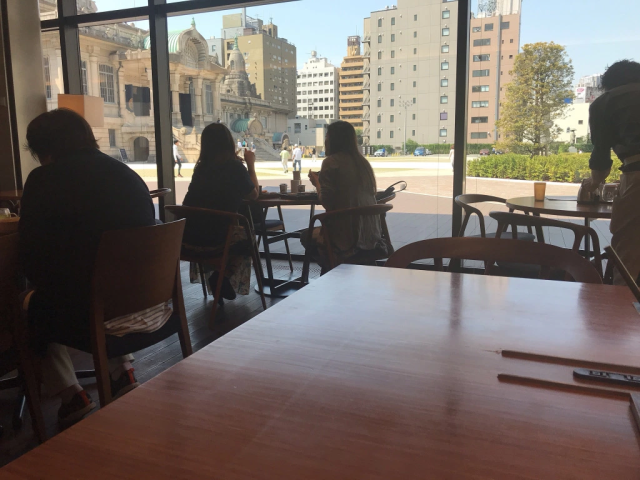
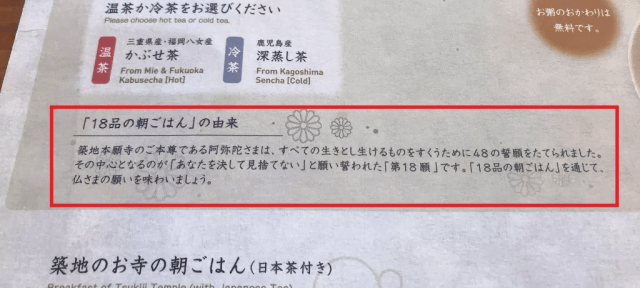
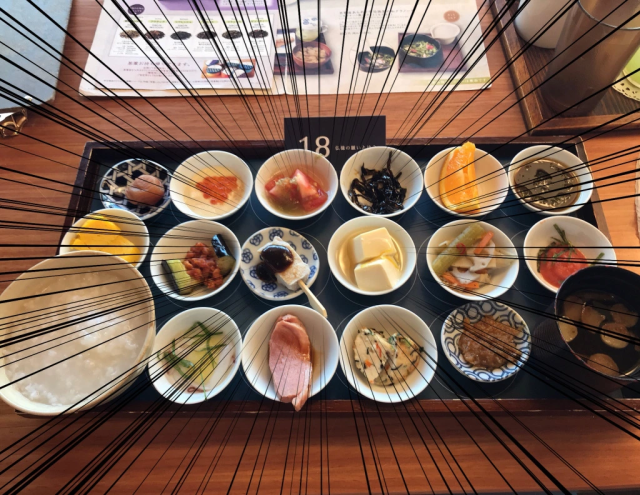

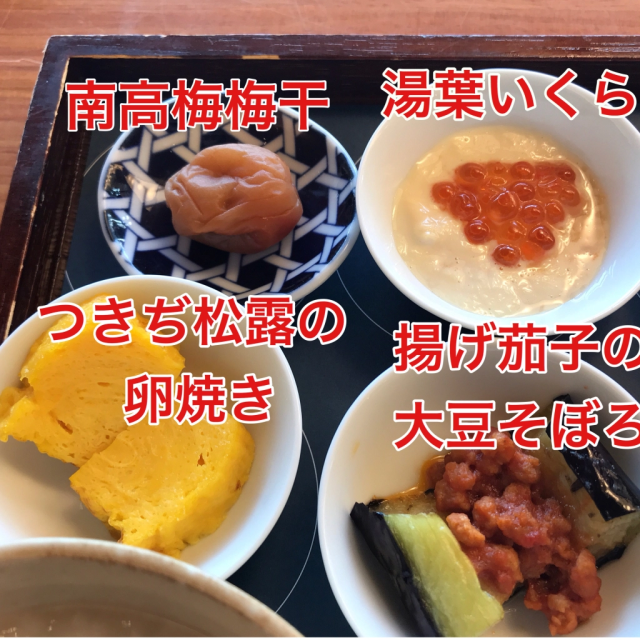
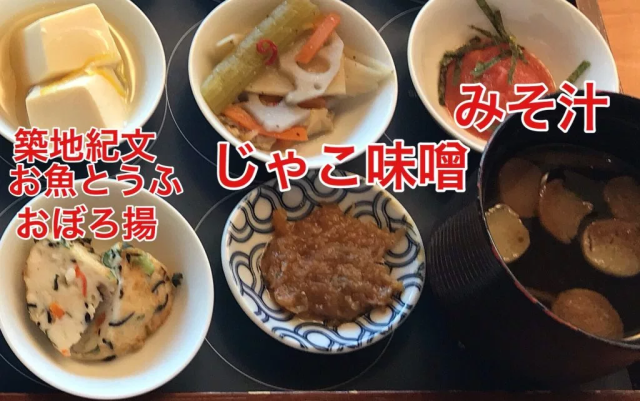
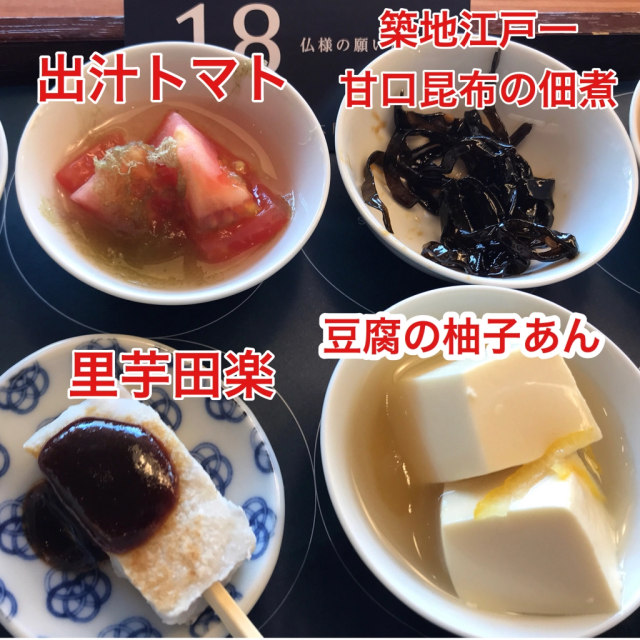
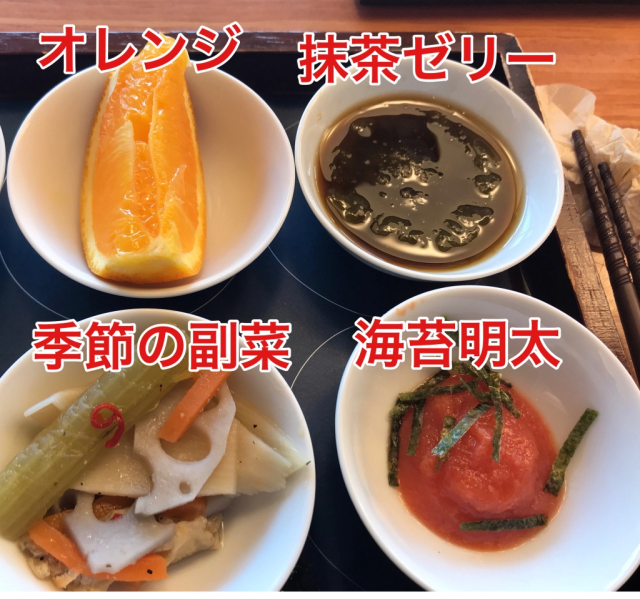
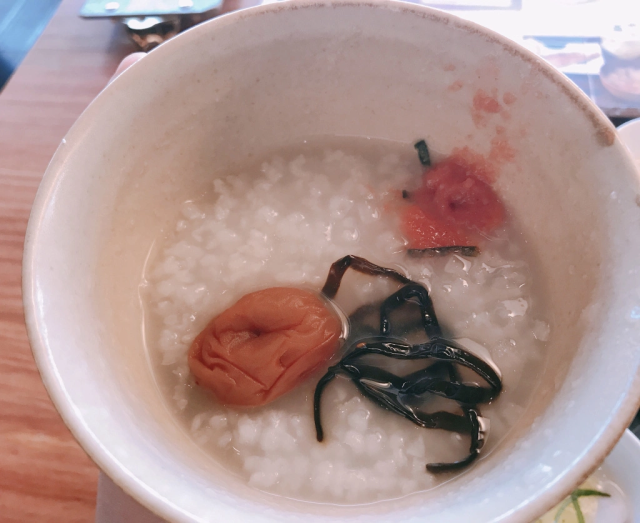
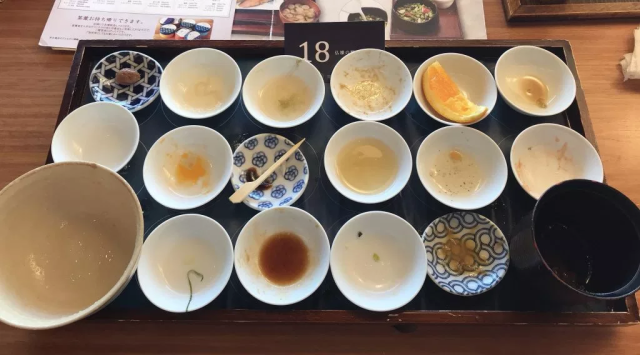
 Tokyo’s Tsukiji Hongan Temple opens a cafe, breakfast set has 16 side dishes!
Tokyo’s Tsukiji Hongan Temple opens a cafe, breakfast set has 16 side dishes! We eat a luxurious Japanese-style buffet breakfast in a restaurant full of wood-carved bears
We eat a luxurious Japanese-style buffet breakfast in a restaurant full of wood-carved bears The best place to eat Japanese breakfast for US$2: Cheap food hack for locals and tourists
The best place to eat Japanese breakfast for US$2: Cheap food hack for locals and tourists We try Japan’s top-ranked hotel breakfast for ourselves, find out if it’s worth the trip to Kobe
We try Japan’s top-ranked hotel breakfast for ourselves, find out if it’s worth the trip to Kobe Sushi for breakfast? Our under-1,000-yen breakfast with Hama Sushi’s new morning menu
Sushi for breakfast? Our under-1,000-yen breakfast with Hama Sushi’s new morning menu McDonald’s new Happy Meals offer up cute and practical Sanrio lifestyle goods
McDonald’s new Happy Meals offer up cute and practical Sanrio lifestyle goods All-you-can-drink Starbucks and amazing views part of Tokyo’s new 170 meter-high sky lounge
All-you-can-drink Starbucks and amazing views part of Tokyo’s new 170 meter-high sky lounge More foreign tourists than ever before in history visited Japan last month
More foreign tourists than ever before in history visited Japan last month Starbucks reopens at Shibuya Scramble Crossing with new look and design concept
Starbucks reopens at Shibuya Scramble Crossing with new look and design concept Beautiful Sailor Moon manhole cover coasters being given out for free by Tokyo tourist center
Beautiful Sailor Moon manhole cover coasters being given out for free by Tokyo tourist center Studio Ghibli glasses cases let anime characters keep an eye on your spectacles
Studio Ghibli glasses cases let anime characters keep an eye on your spectacles Arrest proves a common Japanese saying about apologies and police
Arrest proves a common Japanese saying about apologies and police The oldest tunnel in Japan is believed to be haunted, and strange things happen when we go there
The oldest tunnel in Japan is believed to be haunted, and strange things happen when we go there Is the new Shinkansen Train Desk ticket worth it?
Is the new Shinkansen Train Desk ticket worth it? Hey, Japanese taxi driver! Take us to your favorite restaurant in Tsuruga City!
Hey, Japanese taxi driver! Take us to your favorite restaurant in Tsuruga City! Disney princesses get official manga makeovers for Manga Princess Cafe opening in Tokyo
Disney princesses get official manga makeovers for Manga Princess Cafe opening in Tokyo We try out “Chan Ramen”, an underground type of ramen popular in the ramen community
We try out “Chan Ramen”, an underground type of ramen popular in the ramen community Beautiful new Final Fantasy T-shirt collection on the way from Uniqlo【Photos】
Beautiful new Final Fantasy T-shirt collection on the way from Uniqlo【Photos】 Foreign English teachers in Japan pick their favorite Japanese-language phrases【Survey】
Foreign English teachers in Japan pick their favorite Japanese-language phrases【Survey】 There’s a park inside Japan where you can also see Japan inside the park
There’s a park inside Japan where you can also see Japan inside the park Japanese convenience store packs a whole bento into an onigiri rice ball
Japanese convenience store packs a whole bento into an onigiri rice ball Studio Ghibli releases Kiki’s Delivery Service chocolate cake pouches in Japan
Studio Ghibli releases Kiki’s Delivery Service chocolate cake pouches in Japan Japan’s bone-breaking and record-breaking roller coaster is permanently shutting down
Japan’s bone-breaking and record-breaking roller coaster is permanently shutting down New definition of “Japanese whiskey” goes into effect to prevent fakes from fooling overseas buyers
New definition of “Japanese whiskey” goes into effect to prevent fakes from fooling overseas buyers Foreign passenger shoves conductor on one of the last full runs for Japan’s Thunderbird train
Foreign passenger shoves conductor on one of the last full runs for Japan’s Thunderbird train Our Japanese reporter visits Costco in the U.S., finds super American and very Japanese things
Our Japanese reporter visits Costco in the U.S., finds super American and very Japanese things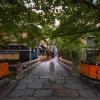 Kyoto bans tourists from geisha alleys in Gion, with fines for those who don’t follow rules
Kyoto bans tourists from geisha alleys in Gion, with fines for those who don’t follow rules Studio Ghibli unveils Mother’s Day gift set that captures the love in My Neighbour Totoro
Studio Ghibli unveils Mother’s Day gift set that captures the love in My Neighbour Totoro Domino’s Japan now sells…pizza ears?
Domino’s Japan now sells…pizza ears? New Japanese KitKat flavour stars Sanrio characters, including Hello Kitty
New Japanese KitKat flavour stars Sanrio characters, including Hello Kitty Sales of Japan’s most convenient train ticket/shopping payment cards suspended indefinitely
Sales of Japan’s most convenient train ticket/shopping payment cards suspended indefinitely Sold-out Studio Ghibli desktop humidifiers are back so Totoro can help you through the dry season
Sold-out Studio Ghibli desktop humidifiers are back so Totoro can help you through the dry season Japanese government to make first change to romanization spelling rules since the 1950s
Japanese government to make first change to romanization spelling rules since the 1950s Ghibli founders Toshio Suzuki and Hayao Miyazaki contribute to Japanese whisky Totoro label design
Ghibli founders Toshio Suzuki and Hayao Miyazaki contribute to Japanese whisky Totoro label design Doraemon found buried at sea as scene from 1993 anime becomes real life【Photos】
Doraemon found buried at sea as scene from 1993 anime becomes real life【Photos】 Tokyo’s most famous Starbucks is closed
Tokyo’s most famous Starbucks is closed One Piece characters’ nationalities revealed, but fans have mixed opinions
One Piece characters’ nationalities revealed, but fans have mixed opinions We asked a Uniqlo employee what four things we should buy and their suggestions didn’t disappoint
We asked a Uniqlo employee what four things we should buy and their suggestions didn’t disappoint Princesses, fruits, and blacksmiths: Study reveals the 30 most unusual family names in Japan
Princesses, fruits, and blacksmiths: Study reveals the 30 most unusual family names in Japan Studio Ghibli’s new desktop Howl’s Moving Castle will take your stationery on an adventure
Studio Ghibli’s new desktop Howl’s Moving Castle will take your stationery on an adventure Tsukiji alternative – Tokyo has a second fish market, and it turns out it’s awesome too
Tsukiji alternative – Tokyo has a second fish market, and it turns out it’s awesome too Mr. Sato eats a Japanese sweet potato brulée so good that it just about knocks his socks off
Mr. Sato eats a Japanese sweet potato brulée so good that it just about knocks his socks off This just might be the best affordable hotel breakfast buffet in all of Japan【Photos】
This just might be the best affordable hotel breakfast buffet in all of Japan【Photos】 Japanese temple puts up three messages of wisdom the Internet should take to heart
Japanese temple puts up three messages of wisdom the Internet should take to heart Eel-topped takoyaki is delicious in any season, but here’s why now is the best time to try it
Eel-topped takoyaki is delicious in any season, but here’s why now is the best time to try it We visit Tokyo’s new all-plant-based cafe “Komeda Is □”
We visit Tokyo’s new all-plant-based cafe “Komeda Is □” Sushi Dai and other famous restaurants from Tsukiji fish market open at new Toyosu location
Sushi Dai and other famous restaurants from Tsukiji fish market open at new Toyosu location Beef bowl chain Yoshinoya’s historic first store to close, special countdown site launched!
Beef bowl chain Yoshinoya’s historic first store to close, special countdown site launched! What’s really for breakfast? 20 Japanese people give us a peek at their morning meal【Photos】
What’s really for breakfast? 20 Japanese people give us a peek at their morning meal【Photos】 With its Inner Market closed down, we stop by Tsukiji to see how Tokyo’s sushi mecca is coping
With its Inner Market closed down, we stop by Tsukiji to see how Tokyo’s sushi mecca is coping Bikkuri Donkey isn’t only good for hamburger steaks–their breakfast is bomb too!
Bikkuri Donkey isn’t only good for hamburger steaks–their breakfast is bomb too! We make delicious, low(er)-calorie Japanese-style pizza with fried tofu and miso!【Sora Kitchen】
We make delicious, low(er)-calorie Japanese-style pizza with fried tofu and miso!【Sora Kitchen】 We try the “Ramen Roll” sandwich, because why not have a bowl of ramen on a hot dog bun?
We try the “Ramen Roll” sandwich, because why not have a bowl of ramen on a hot dog bun? What do hosts in Kabukicho eat after a night of working in Tokyo’s red-light district?
What do hosts in Kabukicho eat after a night of working in Tokyo’s red-light district? Haneda Airport’s new rice ball stand — Sister shop Tokyo’s best out-of-the-way onigiri spot
Haneda Airport’s new rice ball stand — Sister shop Tokyo’s best out-of-the-way onigiri spot
Leave a Reply